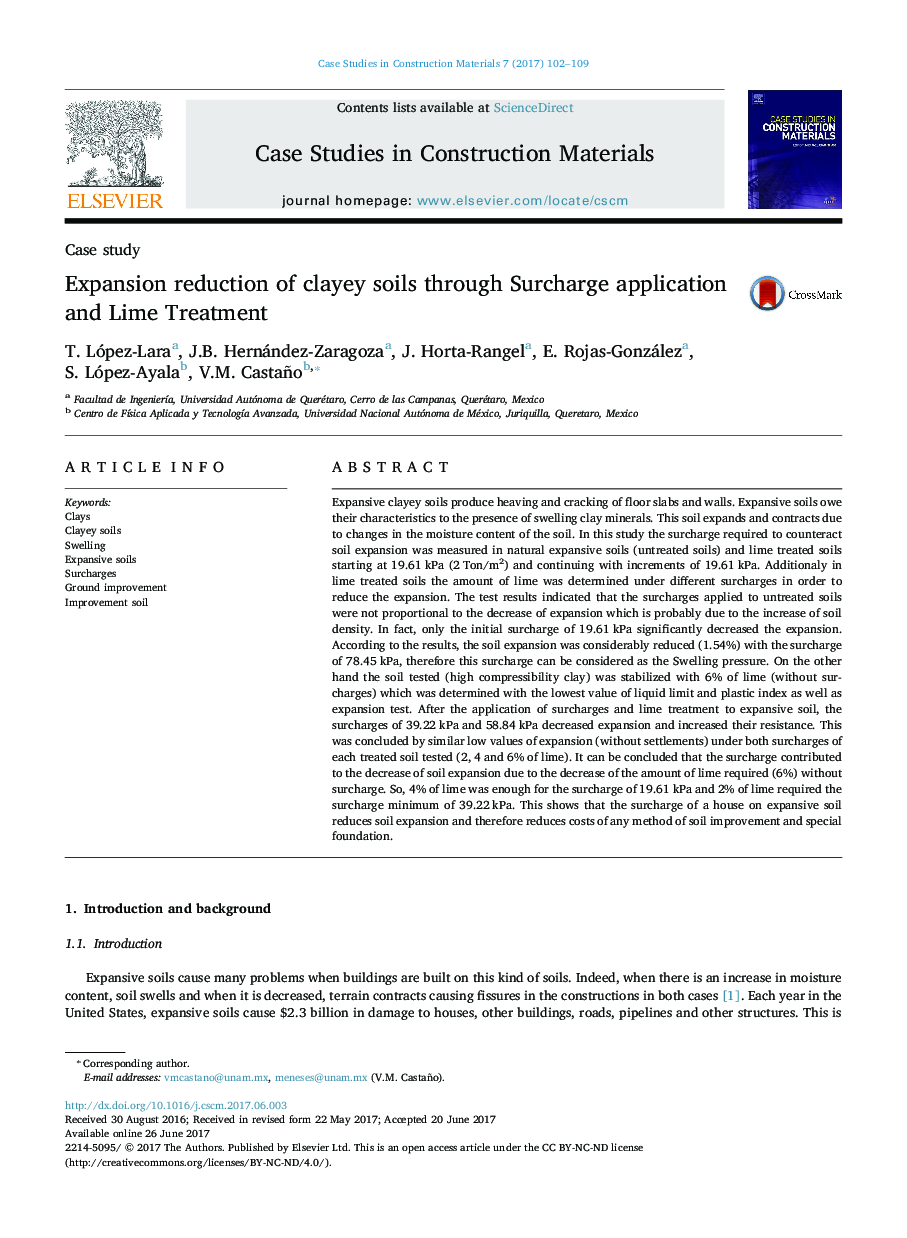| Article ID | Journal | Published Year | Pages | File Type |
|---|---|---|---|---|
| 4911571 | Case Studies in Construction Materials | 2017 | 8 Pages |
Abstract
Expansive clayey soils produce heaving and cracking of floor slabs and walls. Expansive soils owe their characteristics to the presence of swelling clay minerals. This soil expands and contracts due to changes in the moisture content of the soil. In this study the surcharge required to counteract soil expansion was measured in natural expansive soils (untreated soils) and lime treated soils starting at 19.61Â kPa (2Â Ton/m2) and continuing with increments of 19.61Â kPa. Additionaly in lime treated soils the amount of lime was determined under different surcharges in order to reduce the expansion. The test results indicated that the surcharges applied to untreated soils were not proportional to the decrease of expansion which is probably due to the increase of soil density. In fact, only the initial surcharge of 19.61Â kPa significantly decreased the expansion. According to the results, the soil expansion was considerably reduced (1.54%) with the surcharge of 78.45Â kPa, therefore this surcharge can be considered as the Swelling pressure. On the other hand the soil tested (high compressibility clay) was stabilized with 6% of lime (without surcharges) which was determined with the lowest value of liquid limit and plastic index as well as expansion test. After the application of surcharges and lime treatment to expansive soil, the surcharges of 39.22Â kPa and 58.84Â kPa decreased expansion and increased their resistance. This was concluded by similar low values of expansion (without settlements) under both surcharges of each treated soil tested (2, 4 and 6% of lime). It can be concluded that the surcharge contributed to the decrease of soil expansion due to the decrease of the amount of lime required (6%) without surcharge. So, 4% of lime was enough for the surcharge of 19.61Â kPa and 2% of lime required the surcharge minimum of 39.22Â kPa. This shows that the surcharge of a house on expansive soil reduces soil expansion and therefore reduces costs of any method of soil improvement and special foundation.
Related Topics
Physical Sciences and Engineering
Engineering
Civil and Structural Engineering
Authors
T. López-Lara, J.B. Hernández-Zaragoza, J. Horta-Rangel, E. Rojas-González, S. López-Ayala, V.M. Castaño,
